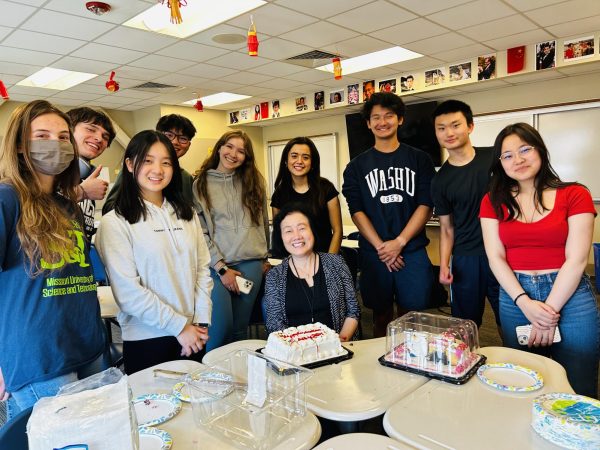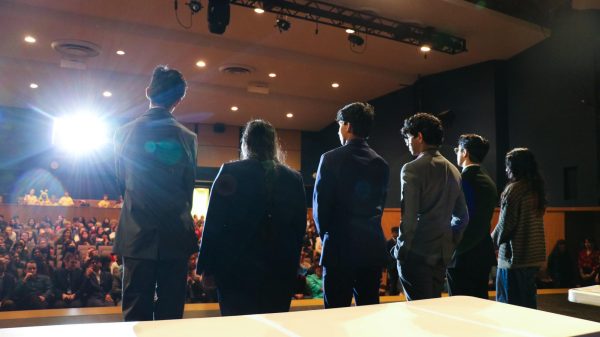Ferguson: One Year
On Aug. 9, 2014, unarmed African-American teenager Michael Brown was fatally shot by White police officer Darren Wilson. For weeks after the shooting, protests and riots grew, not only in St. Louis but across the country. The phrase “black lives matter” became the face of these protests and the message swept across the nation like never before, sparking discussions about race and police brutality.
The incident, coined “Ferguson,” continued with the court’s decision not to indict Wilson, exacerbating anger and disappointment among protesters. Clayton Schools closed the following day and the entire nation had eyes fixed upon St. Louis.
Later on, the Department of Justice (DOJ) released a full report on Ferguson’s city department. This report highlighted flaws in Ferguson’s government specifically pertaining to monetary issues. It was said that this lead to dependence on fines and forfeitures for government income.
As the anniversary of the shooting passed by, none in the Clayton and St. Louis area forgot about the past year’s happenings.
Luke Davis, a senior at CHS, was greatly impacted at the time of the shooting, saying it changed not only his life but the country in many ways. Davis participated in many of the protests around the time of Brown’s death. One year later, he said the intensity of this impact remains the same.
“I think there’s a lot going on that we aren’t aware of that happened because of [Michael Brown], his death” Davis said. “I think that the ‘Black Lives Matter’ movement has definitely been revitalized since his death. It definitely got this huge new wave.”
Davis’ words about the movement connect with the social media uproar which still continues to this day.
“It seems like there’s a death every other week,” Davis said.
With students in the social media generation, this large media presence keeps the ‘Black Lives Matter’ movement and Brown’s death in the minds of many.
“It had an effect on a lot of people,” Davis said. “I think that’s still with them. At least for me it is.”
Stephanie Villaire, a CHS sophomore, furthers Davis’ point about the lasting impact on this generation, particularly pointing towards the ‘Black Lives Matter’ movement.
“This was a death that sparked a movement in our generation.” Villaire said. “We will always look back on this as the reason we pushed for equality and the end of discrimination.”
These opinions and emotions of the general public one year after Brown’s death can be allayed by changes occurring in Ferguson’s city government.
On the city’s official website, a new page exists dedicated to these modifications. The page outlines the government’s effort to piece a broken city back together. Titled “Moving Ferguson Forward,” the page lists the city council’s, along with the mayor’s, goals for the city. These initiatives include everything from building new partnerships to boosting resident dialogue; the top two on the list entail improving resident and police relations and improving municipal court regulations.
Ferguson Mayor James Knowles commented on the “plan,” saying it was really just a combination of all the reform efforts that began during the past year.
“Most of stuff what we’ve done over the past year has really started out trying to hear what the concerns are what the frustrations are from people and really digging in and immediately seeing what we as a city government can do,” Knowles said.
Aside from this resident feedback and an increased amount of town meeting, reform efforts also include big changes to the court system and financial planning.
“The state cap on how much money can come from fines and fees was 30%,” Knowles said. “The city of Ferguson did a voluntary imposition of restricting ourself to 15 percent which at the time was half to show people that we didn’t intend to use crime and forfeiture money as a core part of the revenues of the city.”
These monetary changes pertain to the fine issues highlighted by the DOJ report, although Knowles said the changes were already happening before the report was released.
Although Aug. 9, 2015 marked the one year anniversary of Brown’s death, the anniversaries of other events are still to come. Particularly the court decision not to indict Wilson sparked many of the riots and protests associated with Ferguson’s case. Knowles thinks that this is another significant anniversary to be considered.
“We’ve made tremendous progress but there’s still a lot of progress to be made. I think by the time we hit the one year anniversary of the Grand Jury decision, we’ll have seen even more progress, and that’s really the measuring stick I would use,” he said. “One year since that occurred is probably a fair estimate to measure how far we’ve come. After that was when the community really started to heal.”
A $50 or more donation includes a subscription to the Clayton High School Globe 2024-2025 print news magazine.
We will mail a copy of our issues to the recipients of your choice.
Your donation helps preserve the tangible experience of print journalism, ensuring that student voices reach our community and that student democracy thrives.

Mita is a senior at CHS and has had the pleasure of being on the Globe staff all four years of her high school career. She believes journalism to be a powerful change-maker and...










